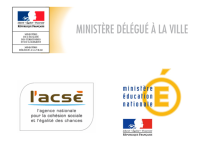 Motivation : Those programmes take care of children that face family, social or school issues and they organize multidimensional interventions towards children and their family. It is the largest non-housing urban social intervention. A study has yet to provide a global measure of programme impact on beneficiaries at the national level.
Motivation : Those programmes take care of children that face family, social or school issues and they organize multidimensional interventions towards children and their family. It is the largest non-housing urban social intervention. A study has yet to provide a global measure of programme impact on beneficiaries at the national level.
The project: This project aims at understanding the changes introduced by the implementation of PREs directed at children and families. To rigorously measure impact, the evaluation uses systematic and uniform measures to understand the evolution of children’s quality of life, personal happiness, school perception and family relations. The evaluation uses a meticulously selected control group of non-beneficiary children to compare with the treatment group. This allows the study to determine the various dimensions by which the evolution of children who participate in the PRE programme differs from those who do not participate. The study will allow to explore the channels of action of the programme.
Funding : The General Secretariat of the Interministerial Committee for Cities (SG CIV) is funding the evaluation as part of the 2012 Annual Work Programme of the National Observatory of Sensitive Urban Areas (ONZUS).
Researchers : Marc Gurgand (CNRS-PSE), Nina Guyon (National University of Singapore), François Keslair (PSE), Marion Monnet (IPP), Pascal Bressoux (Université Pierre Mendès France), , Julie Pernaudet (Polytechnique)
Partners :
 The General Secretariat of the Interministerial Committee for Cities (SG-CIV)
The General Secretariat of the Interministerial Committee for Cities (SG-CIV)- The National Agency for Social Cohesion and Equal Opportunities (ACSé)
- The General Directorate for School Education (DGESCO)
- The Evaluation, Forecasting and Performance Department of the Ministry of National Education (DEPP)
Publications
- IPP Report n°13, March 2016: “Impact evaluation of social and educational programmes for disadvantaged students“
Ce message est également disponible en :  French
French


